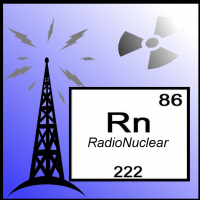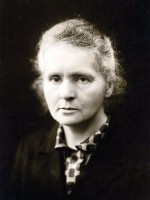Advocating for Nuclear with the NESD
Sometimes it feels like we're fighting an uphill battle for nuclear energy - and perhaps we are.

Sometimes it feels like we're fighting an uphill battle for nuclear energy - and perhaps we are.
The seismic event was huge and was felt all over the world. With a moment magnitude of over 9.0, the earthquake and was the fourth largest ever in the more than 100 years of recorded history. Huge land masses shifted as much as 2.4 meters, and the rotation of the earth was changed so that days were suddenly just a little (but measurable) bit shorter. It had sped up the world.
Nuclear energy has played a key supporting role in historic missions to Mars, Pluto, and across the Solar System for the last 50 years. On January 1 2019, the nuclear-powered New Horizons flew by the most distant object ever observed up close - Ultima Thule, after it having already flown by Pluto in 2015.
 Welcome to the New Year! Even though I am on the road, there is just so much happening lately in nuclear I could not pass up the opportunity to talk about it! This episode of RadioNuclear, we take a look at recent and exciting legislation and policy for advanced nuclear. This includes the passages of the NEIMA and NEICA bills and what the Idaho National Laboratory may look like in the coming years. We also discuss the NRC's recent decision on post Fukushima regulation. Lastly, we look on how you can adopt a dog from the Chernobyl exclusion zone. No, I am not making that up!
Welcome to the New Year! Even though I am on the road, there is just so much happening lately in nuclear I could not pass up the opportunity to talk about it! This episode of RadioNuclear, we take a look at recent and exciting legislation and policy for advanced nuclear. This includes the passages of the NEIMA and NEICA bills and what the Idaho National Laboratory may look like in the coming years. We also discuss the NRC's recent decision on post Fukushima regulation. Lastly, we look on how you can adopt a dog from the Chernobyl exclusion zone. No, I am not making that up!
Two bipartisan pieces of legislation modernizing America's nuclear future have recently become law. It's still a long way from pushing nuclear builds the way we need to address a host of environmental issues, but it is a good start.
Albert Einstein is one of the most well-known physicists throughout history. Among other things, he is also known for formulating the world-famous equation E=mc2, the equation that relates that energy and mass as not separate, but rather a single entity. This equation opened doors to numerous scientific advances.
 The start of Marie Curie's story isn't like most of the other scientists that had made a name for themselves throughout history, mostly because she was a grown woman by the start of the 20th century. But she was the first woman to do a lot of things, including getting a Ph.D. from a university in France, and winning a Nobel Prize. She was also the first person ever to win a Nobel Prize in two different fields of science. To say she pushed the societal and scientific boundaries of her era is an understatement.
The start of Marie Curie's story isn't like most of the other scientists that had made a name for themselves throughout history, mostly because she was a grown woman by the start of the 20th century. But she was the first woman to do a lot of things, including getting a Ph.D. from a university in France, and winning a Nobel Prize. She was also the first person ever to win a Nobel Prize in two different fields of science. To say she pushed the societal and scientific boundaries of her era is an understatement.
The year 1971 saw a continuation of the general trend of rising capital costs for all types of power plants, described by the U.S. Atomic Energy Commission (AEC) in its publication for 1971 as having "risen rather rapidly." According to the AEC, the aggregate major causes for the increases in costs specific to nuclear electric power plants were as follows, with author's analysis accompanying each:
On Episode 12 of RadioNuclear, we discuss how fear-mongering stories about nuclear power plants in the path of a hurricane are irrelevant, the Oyster Creek Shutdown, and lastly, how nuclear power should be used geopolitically.